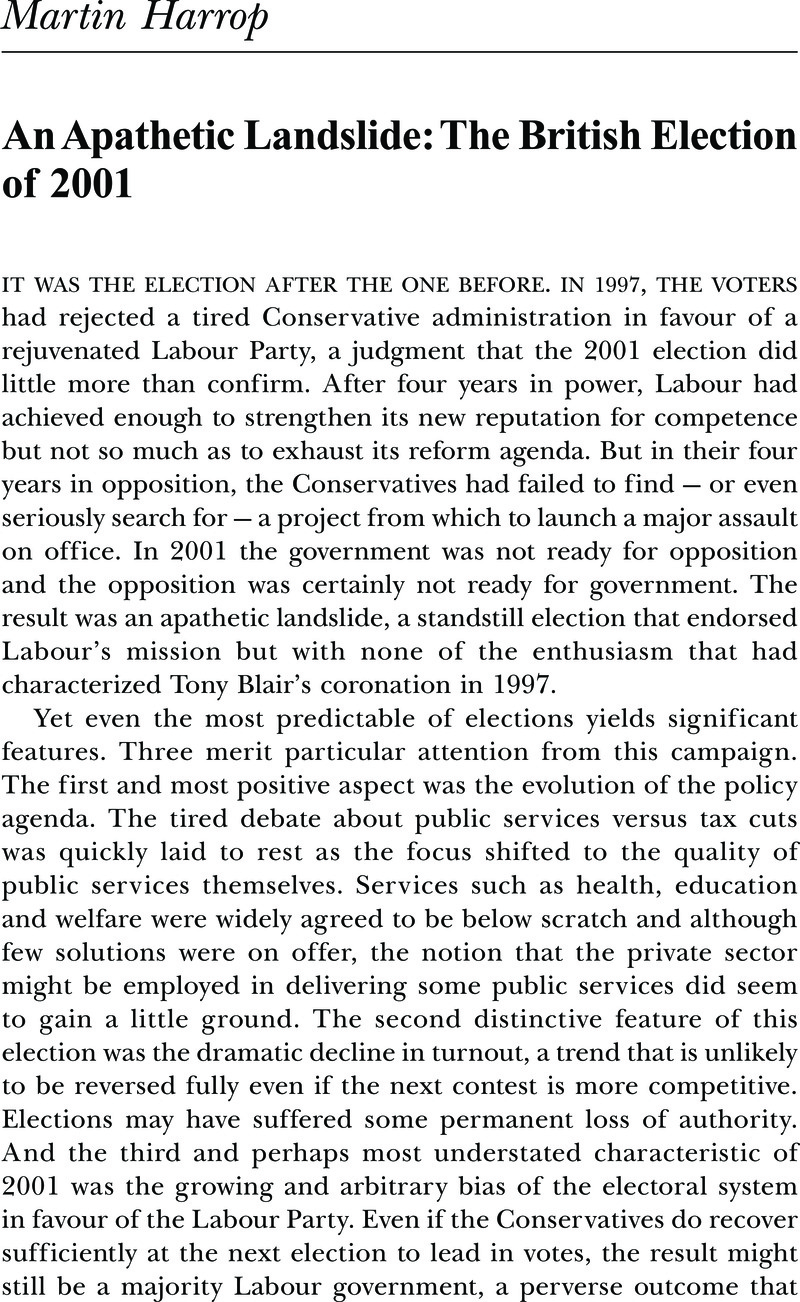Article contents
An Apathetic Landslide: The British General Election of 2001
Published online by Cambridge University Press: 28 March 2014
Abstract

Information
- Type
- Research Article
- Information
- Copyright
- Copyright © Government and Opposition Ltd 2001
References
1 The Commission also published Election 2001: The Official Results (London, 2001). For further coverage of the election, see Butler, D. and Kavanagh, D., The British General Election of 2001, London, Macmillan, forthcoming 2001 Google Scholar and The Times Guide to the House of Commons, June 2001, London, Times Newspapers, 2001. Constituency results are on-line at pippanorris.com.
2 Butler, D. and King, A., The British General Election of 1964, London, Macmillan, 1965, p. 133.CrossRefGoogle Scholar
3 This claim was probably true, at least for education. An OECD report published after the election claimed that half a percentage point of economic growth in the UK during the 1990s could be attributed to the country’s educational attainment, a larger estimate for the impact of education than that obtained for many comparable countries. See OECD, Education at a Glance, Paris, OECD, 2001.
4 Heath, R. Jowell, A. and Curtice, J., The Rise of New Labour: Party Policies and Voter Choice, Oxford, Oxford University Press, 2001, p. 45.CrossRefGoogle Scholar
5 The Rise of New Labour, p. 138.
6 We must all re-read Morris Jones, W. H., ‘In Defence of Apathy: Some Doubts on the Duty to Vote’, Political Studies, 2 (1954) pp. 25–37.CrossRefGoogle Scholar
7 Dalton, R. and Wattenberg, M., Politics Without Partisans: Political Change in Advanced Industrial Democracies, Oxford, Oxford University Press, 2000 Google Scholar and Pharr, S. and Putnam, R. (eds) Disaffected Democracies: What’s Troubling the Trilateral Countries?, Princeton, NJ, Princeton University Press, 2000.Google Scholar
8 Lijphart, A., ‘First Past The Post, PR and the Empirical Evidence’, Representation, 36 (1999) pp. 133–6.Google Scholar
- 12
- Cited by

